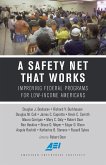It is a known fact that Nigeria, like many developing countries, has challenges with public governance. This challenge is evident by the huge deficit of basic infrastructures for the teeming population; and the much inefficiency of several public leaderships in Nigeria. This book gives a synopsis of the issues of public leadership that has doggedly put Nigeria down. It gives the keys that have yielded the exclusive results in Lagos, and the public leaders that have determined to change public leadership for good. Lagos is in the forefront of this new wave of amazing and pleasant change, and has achieved the seemingly impossible! The achievements within the last few years are phenomenal. How has Lagos, one of the most populous States in Nigeria that is the most populous African country achieved this feat? This book is valuable to interested Nigerians, other nationals, governments, and researchers alike, who are interested in seeing a new and efficient public leadership in Nigeria,and indeed in other developing countries of the world.
Bitte wählen Sie Ihr Anliegen aus.
Rechnungen
Retourenschein anfordern
Bestellstatus
Storno








